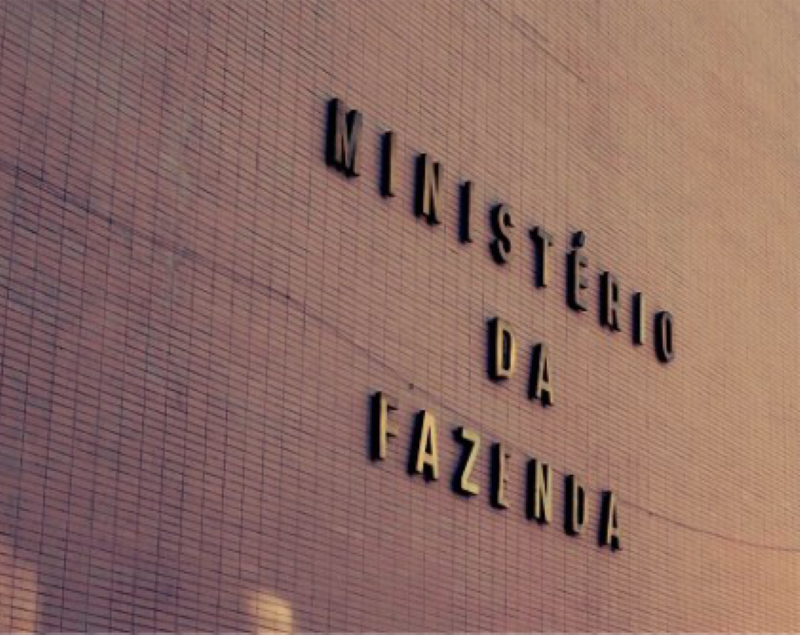RIO DE JANEIRO, BRAZIL – Brazil comes up with a bit of sensation. While most other countries are accumulating massive new debt due to the pandemic and the resulting problems, America’s second-largest economy is running its lowest primary deficit in seven years.
Revenue growth and reduced spending related to the Covid-19 pandemic have led to the 2021 primary deficit reaching its lowest level since 2014, according to the National Treasury yesterday (28).
Last year, the central government – the Ministry of Finance, Social Security and the Central Bank – recorded a negative primary result of just R$35.073 billion (US$6.3 billion).

In December, the Special Secretariat for Finance and Budget had announced that the projection of the primary deficit for 2021 was R$89.823 billion. The result was also better than market forecasts.
According to the “Fiscal Prism” survey, which the Ministry of Economy publishes every month together with financial institutions, market analysts predicted a primary deficit of R$83 billion last year.
The primary result is the negative result of the government accounts excluding interest payments on the national debt.
In December alone, the central government recorded a primary surplus of R$13.824 billion, the best month since 2013, when it reached R$14.397 billion.
The primary result in December was better than forecast by financial institutions. According to Fiscal Prism, market analysts had expected a deficit of R$14.4 billion last month.
In 2020, the central government had recorded a record deficit of R$743.255 billion. The negative result was the additional spending to fight the Covid 19 pandemic, which amounted to R$520.9 billion last year.
In 2021, spending on named loans decreased by R$366.5 billion, spending on aid to states and municipalities decreased by R$89.4 billion, and spending on subsidies and grants decreased by R$16.3 billion compared to the previous year. According to the Ministry of Economy, all of these expenditures were related to the fight against the pandemic.
Since 2014, the central government has posted negative results. For 2022, the general budget of the Union forecasts a primary deficit of R$79.3 billion.
The increase in the deficit is due to the constitutional amendment that changed the formula for calculating the expenditure ceiling and gave the government leeway to introduce Auxílio Brasil, a money transfer program that replaces Bolsa Família.
REVENUES AND EXPENDITURES
However, the most important factor in the improvement of the budget outcome in 2021 was the growth of tax revenues, which broke records.
Last year, net revenues increased by 21.2% compared to 2020, taking into account official inflation through the National Wide Consumer Price Index (IPCA). They totaled R$1.579 trillion last year, more than the R$1.566 trillion estimated by the economic team in December.
Excluding pandemic spending, central government costs totaled R$1.614 trillion in 2021, down 23.6% when IPCA is taken into account.
The figure was lower than the R$1.656 trillion projected by the Ministry of Economy in December. This is partly due to the postponement of spending for 2021, which will be made at the beginning of this year.
Social security benefits totaled R$709.58 billion, a decrease of 1.3% when inflation is taken into account. Last year, the Social Security deficit totaled R$247.338 billion, a decrease of 11.7% compared to 2020, also taking into account inflation.
The figure was slightly lower than the negative result of R$248.23 billion estimated by the economic team in December.
Part of the decrease in the deficit is due to the reform of the social security system, which increased contributions and reduced expenditures in the medium term. Another part is due to the recovery of the labor market in 2021, as more people formally contribute to the National Institute of Social Security (INSS).
Public service spending also decreased, totaling R$329.35 billion, a decrease of 5.4% after discounting inflation using the IPCA. The decrease is due to the freeze on public employees’ salaries that applied from June 2020 until the end of last year.
INVESTMENTS
Expenditures on costs (maintenance of public apparatus) will amount to R$ 397.58 billion in 2021, a decrease of 48.6% compared to the previous year, subtracting inflation.
Capital expenditures (public works and equipment acquisition) have also decreased, amounting to R$56.83 billion, a decrease of 50.6% if the IPCA is deducted for the same comparison.
However, the decrease is due to the expenses related to the pandemic. The amount is slightly higher than in 2019, when the government invested R$56.59 billion.
A total of R$16.4 billion in discretionary (non-mandatory) spending will not be executed in 2021, as it is hoarded in several ministries.
Due to the rigidity of the legislation, several types of expenditures remain tied to specific measures. They cannot be reallocated even if there is no prospect of execution in the current year.
SPENDING CAP
The National Treasury recommended the approval of reforms that reduce the government’s mandatory expenses and preserve the spending cap. This mechanism limits the growth of costs to inflation for up to 20 years as a fiscal anchor.
According to the body, despite record revenue collections and the drop in pandemic spending, the spending cap contributed to reducing the primary deficit.
“Were it not for this rule [spending cap], the Central Government result could be, theoretically, lower by almost ten times, since the primary result target for the year, with all the expected compensations, allowed a deficit of more than R$330 billion,” said the Treasury.

